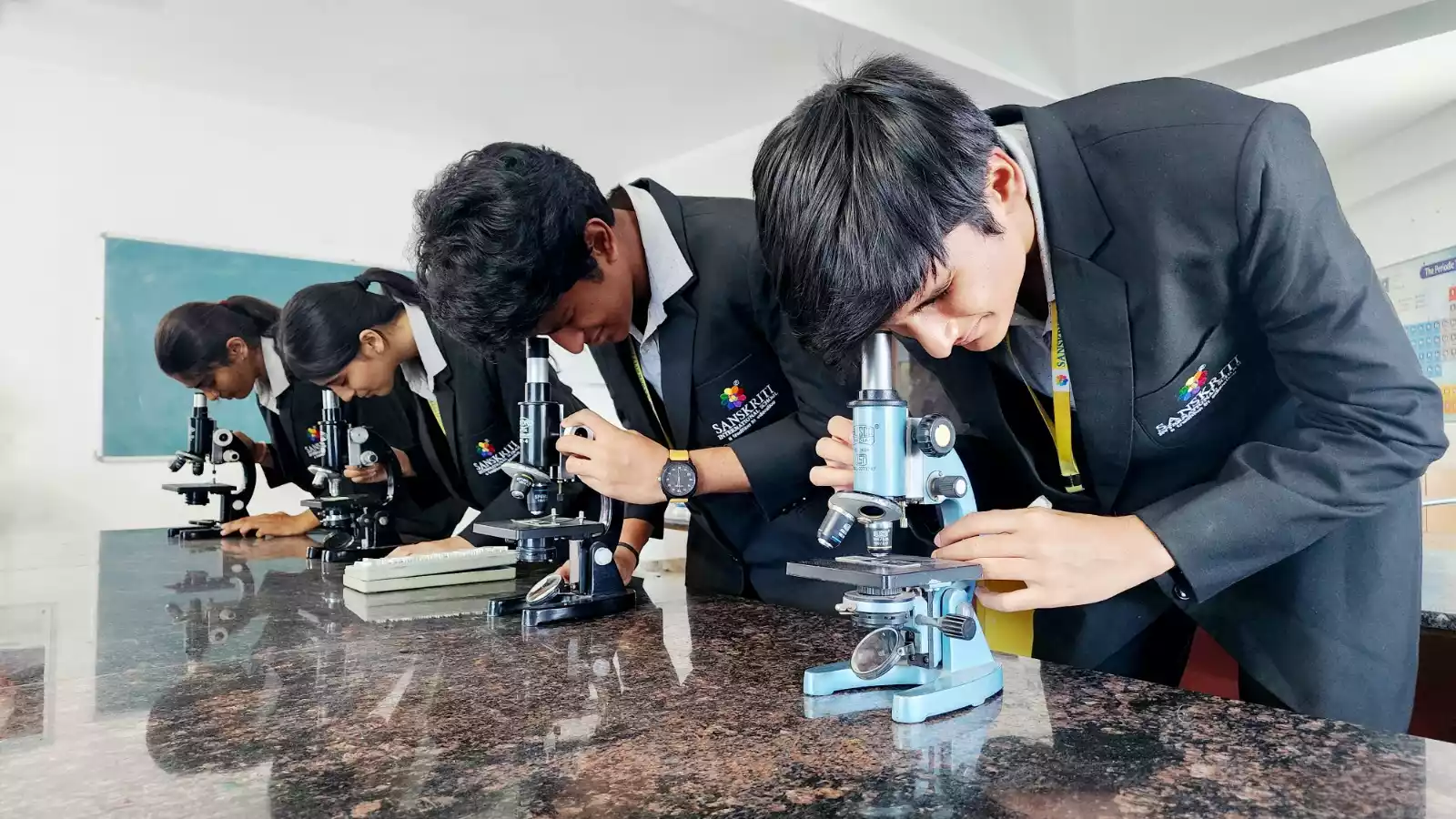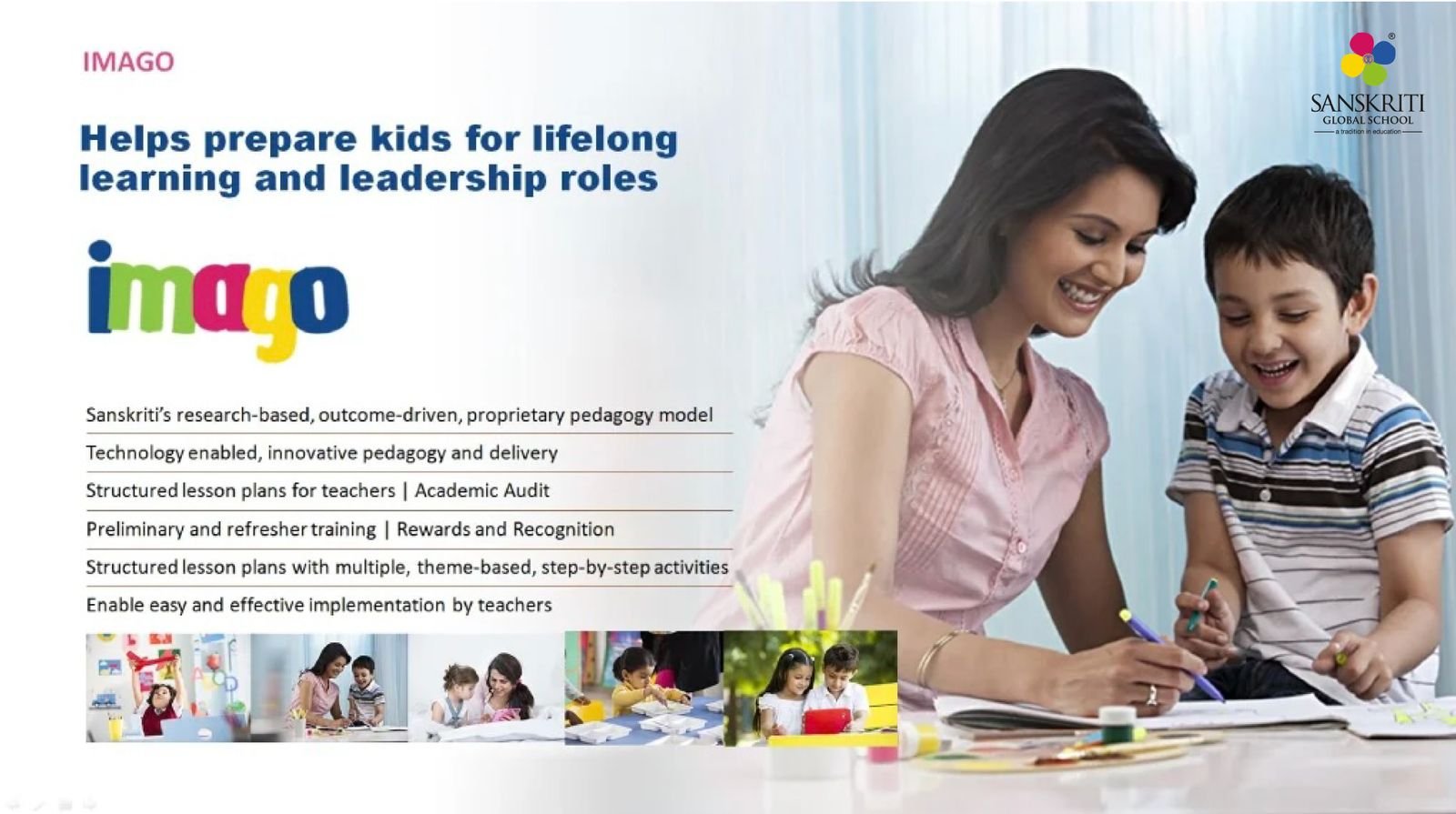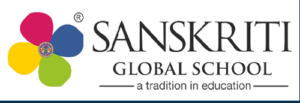- info@sansrev.com
- 9849104335
Primary School
- Home
- Primary School
Primary School
(Grade 1-5)
Life is an interaction of the wholes, rather than a collection of parts. A child has to be seen as a whole person with Body, Mind and Soul (BMS). Holistic Education includes a variety of learning approaches to meet the child’s diverse learning needs. Holistic development is the base of our “SEVEN SPHERES OF DEVELOPMENT APPROACH”
Seven Spheres of Development approach is designed to enrich all the aspects of a child’s development and to give a holistic development to the child, enabling them to become a whole learner by using their multiple intelligence.
In the IMAGO curriculum, the child is developed holistically through “SEVEN SPHERES OF DEVELOPMENT APPROACH” – Creative, Collaborative, Conceptual, Connect, Comprehensive, Critical thinking and Cultural. This approach aims to develop compassionate and productive human beings who are capable of going global with deep cultural roots and leading an empowered life for themselves and those around them.
Every lesson in this book is designed in a way that the child is able to implement all the SEVEN SPHERES. All the spheres are integrated into every lesson because “EACH SPHERE MATTERS” for a child’s holistic development as “EACH CHILD MATTERS” to us.


SEVEN SPHERES OF DEVELOPMENT
The child’s imagination is stimulated and enhances the ability to create or generate new ideas.
The child is able to think clearly and rationally to understand the logical connections, identify the relevance and solve the problems systemically. Critical Thinking encompasses of vital skills such as analysis, creative thinking, interpretation, evaluation and reasoning.
Collaboration helps the child think more deeply and develop more empathy for fellow being’s perspectives, thereby developing the leadership qualities within them. The children practice social behavior, take responsibility, and learn from each other.
The children grasp broader principles or ideas and have a deep understanding about the concepts in a transferable way, which can help them take what they learn in class and apply it across all spheres of development.
Understanding the relationship and making connections between what they learn and how those concepts can be applied in everyday situations will equip them with the logical thinking and investigative tools necessary to make them a whole learner.
The child is able to acquire content knowledge and express ideas and opinions through discussion and writing. The child goes beyond reading the text on the page by finding the meaning in the text and being able to summarize, reiterate, and apply what has been read.
The child is able to understand their own cultural values and also able to go global with their own cultural roots. The ability to empathize with different cultures is a key skill or competence to becoming a global citizen. It increases children’s awareness, appreciation, and inclusion of diverse beliefs and cultures.

